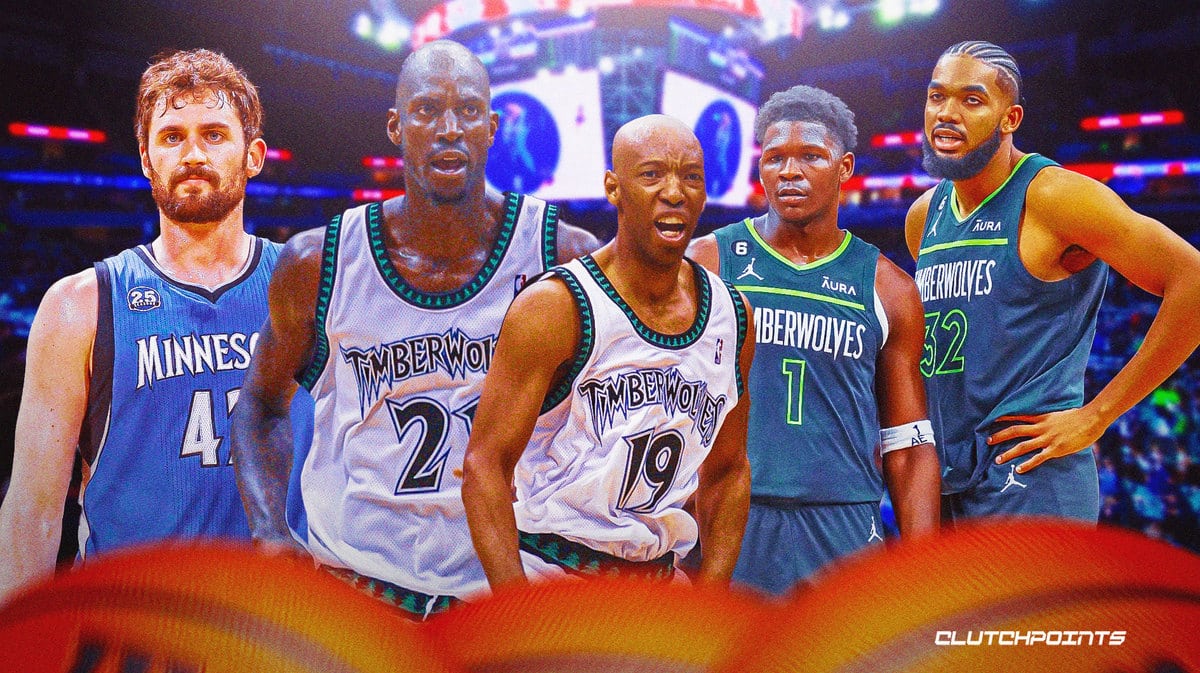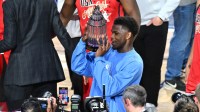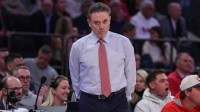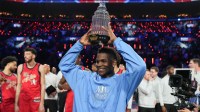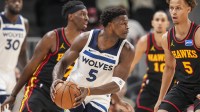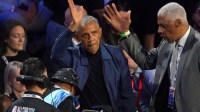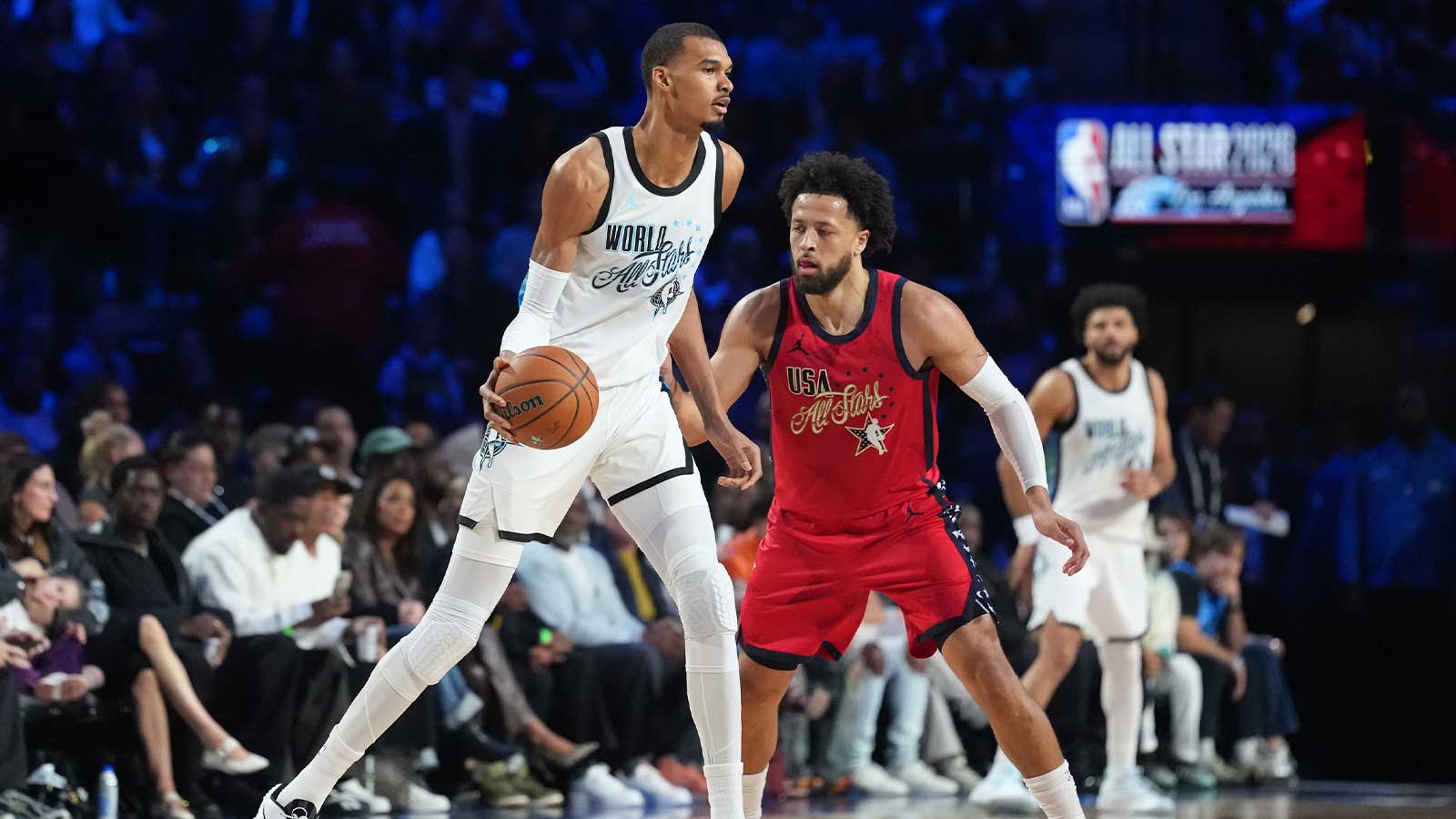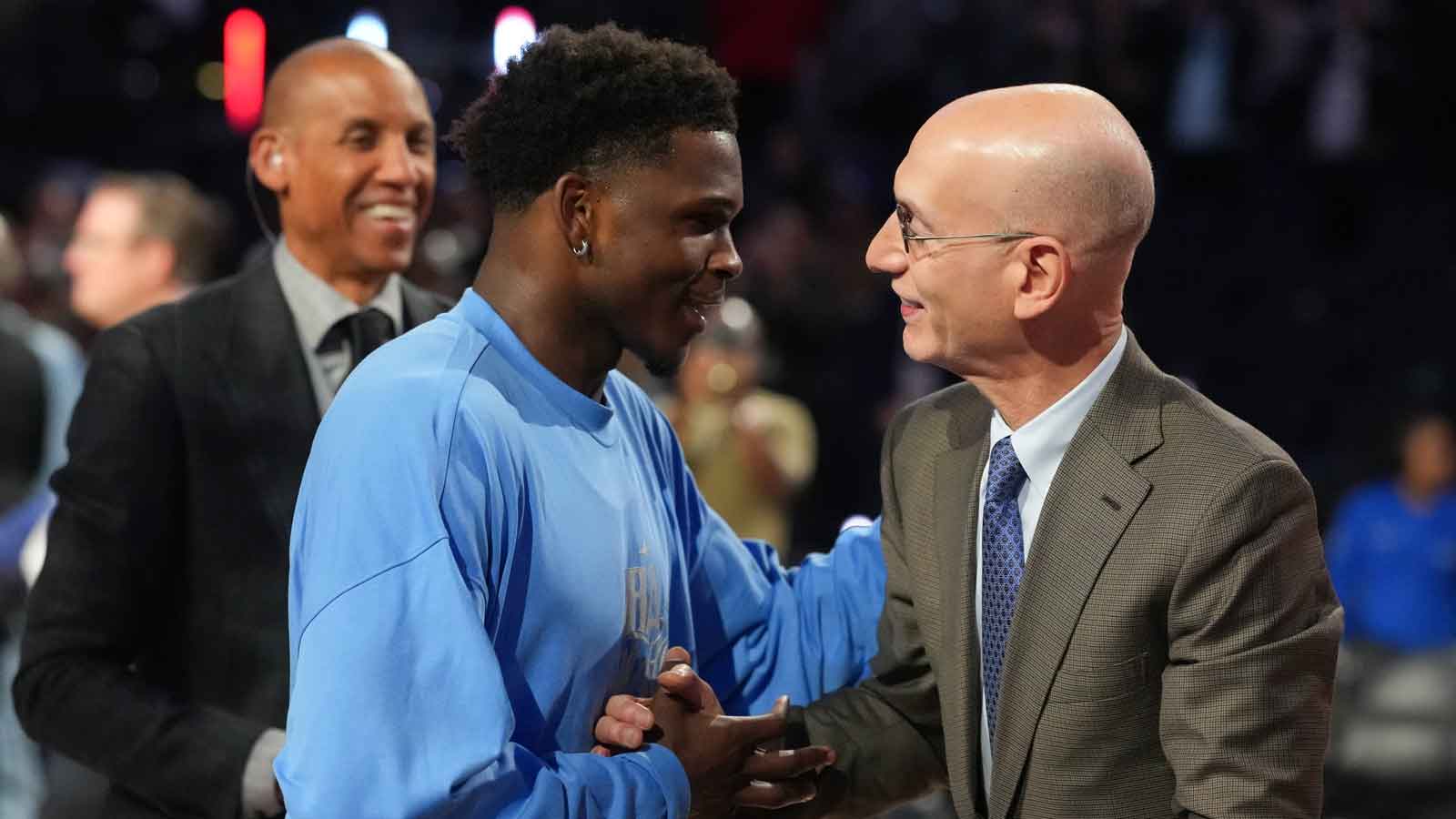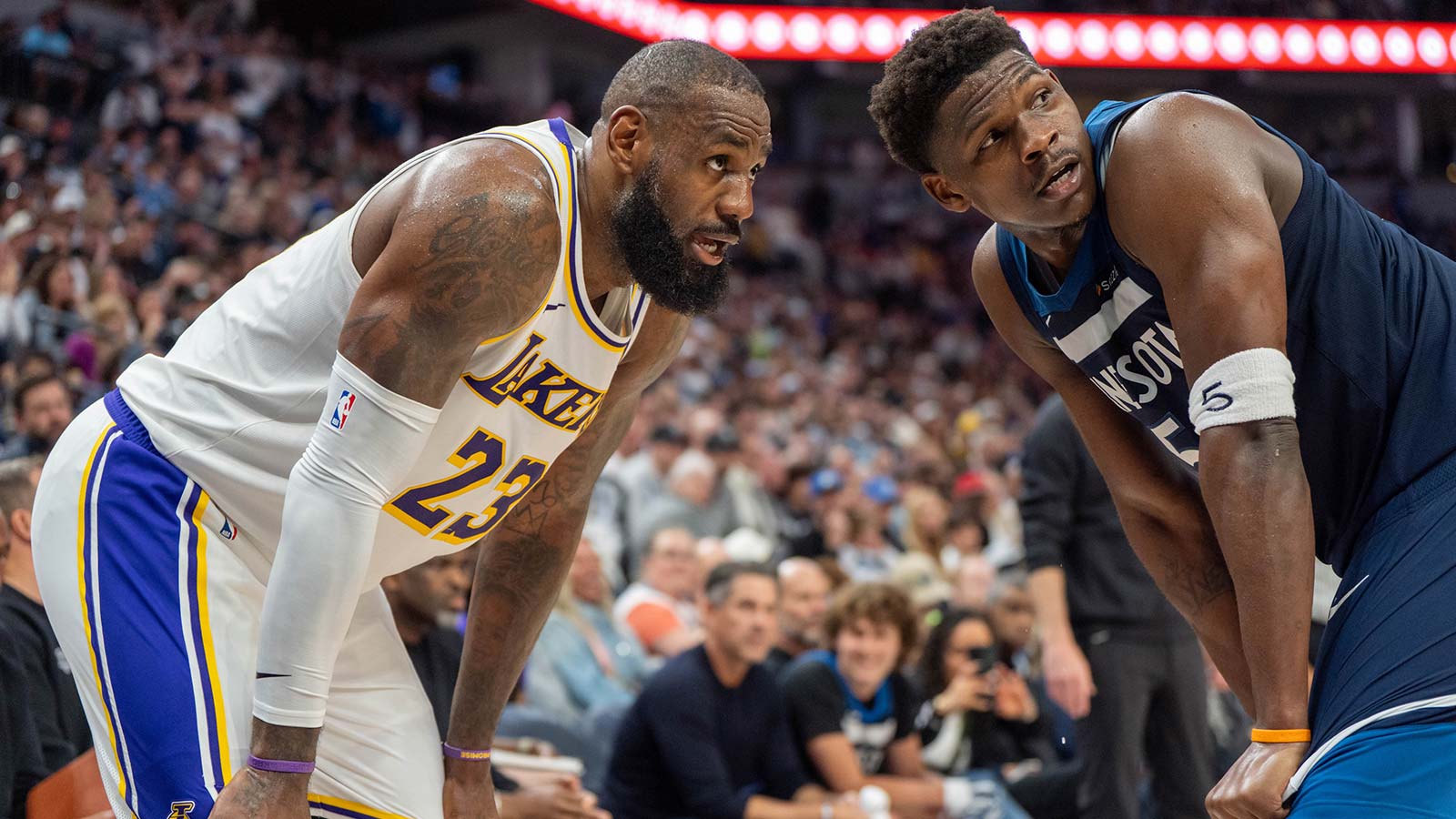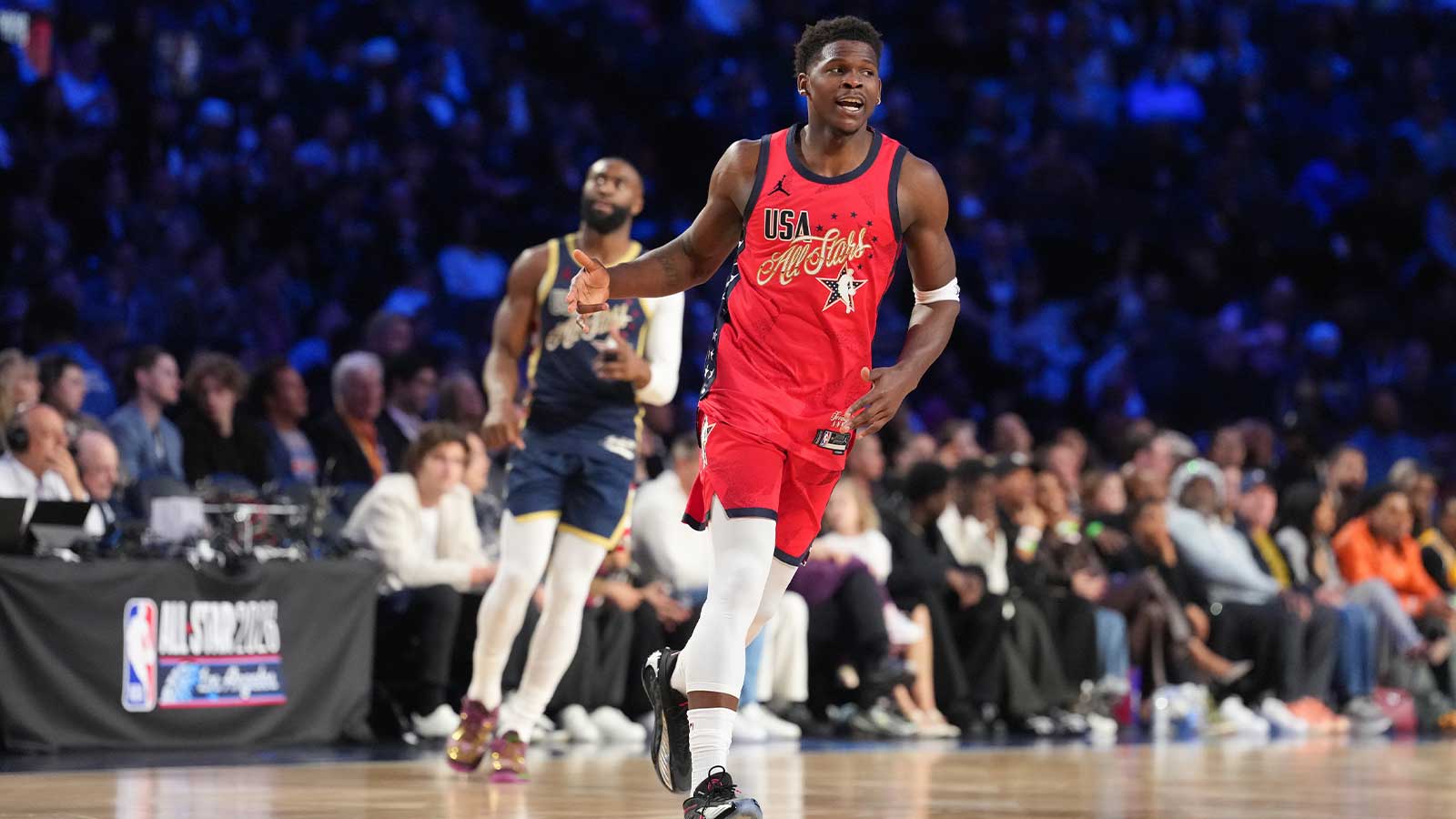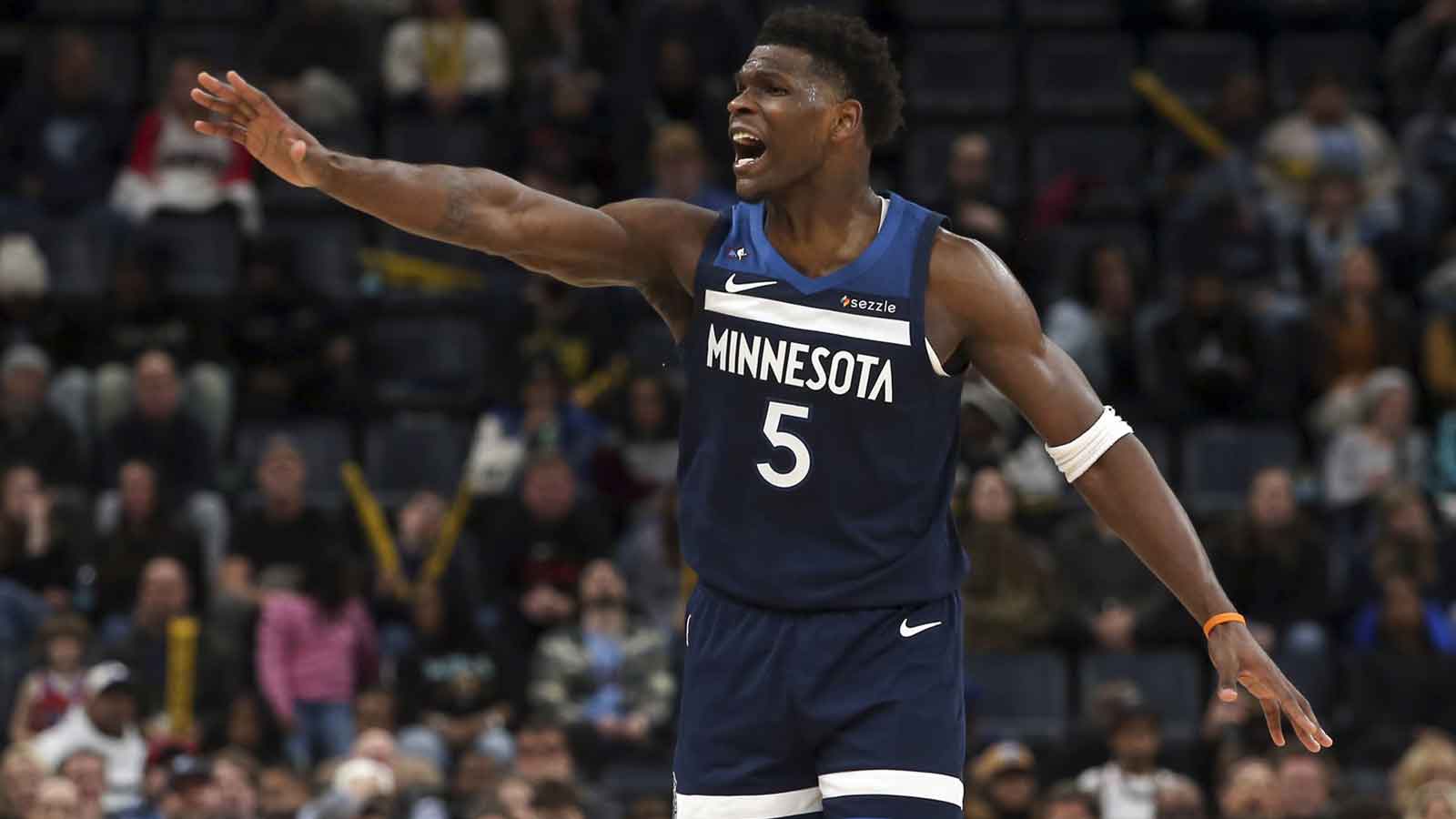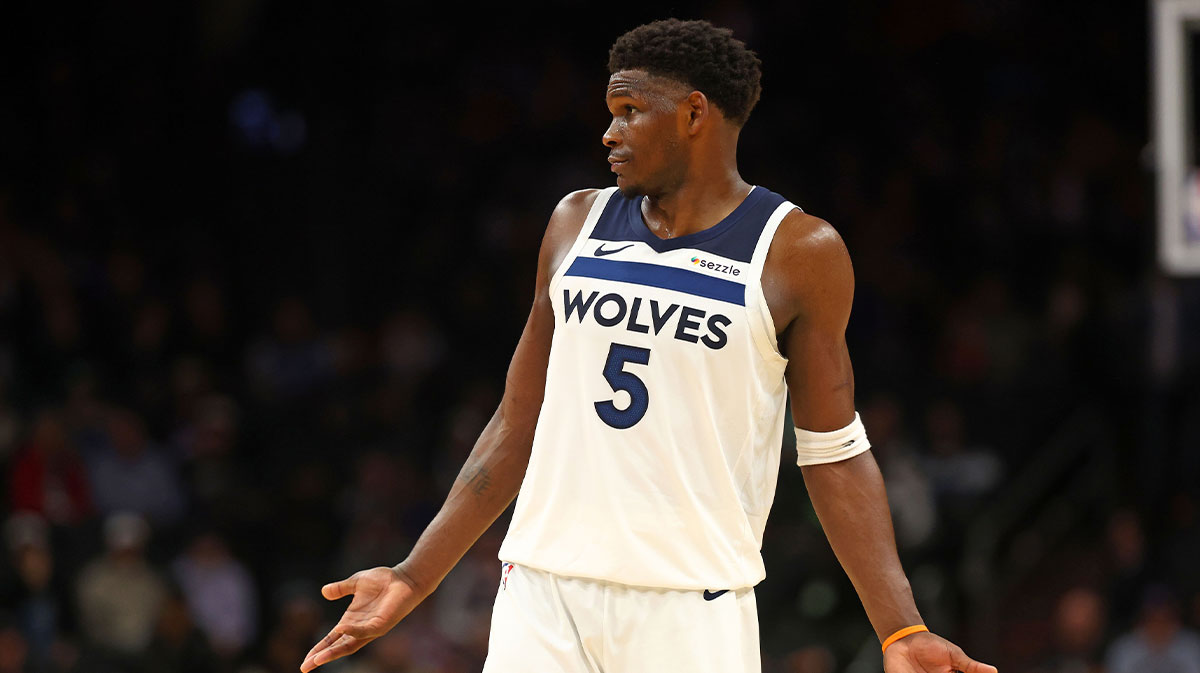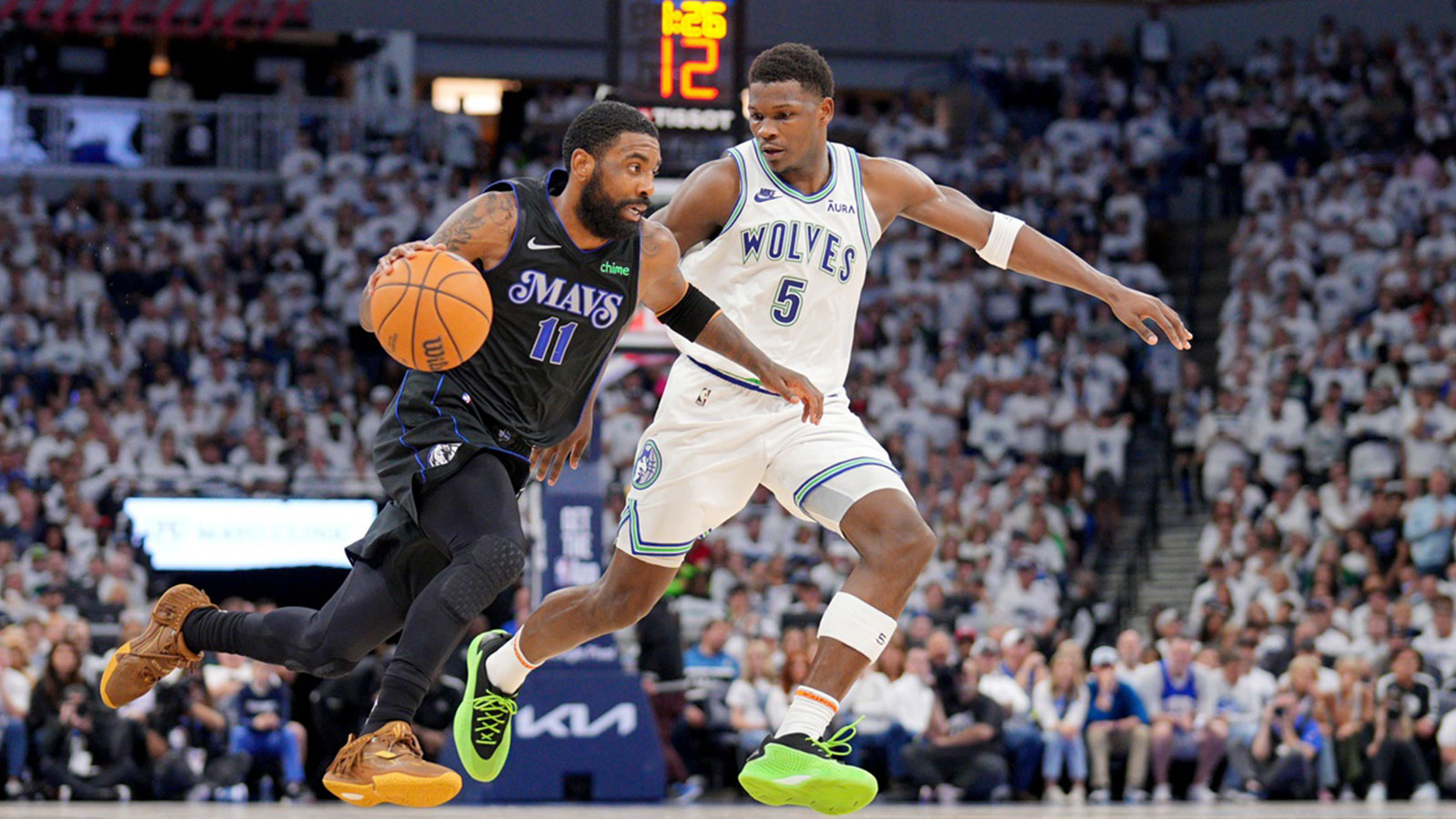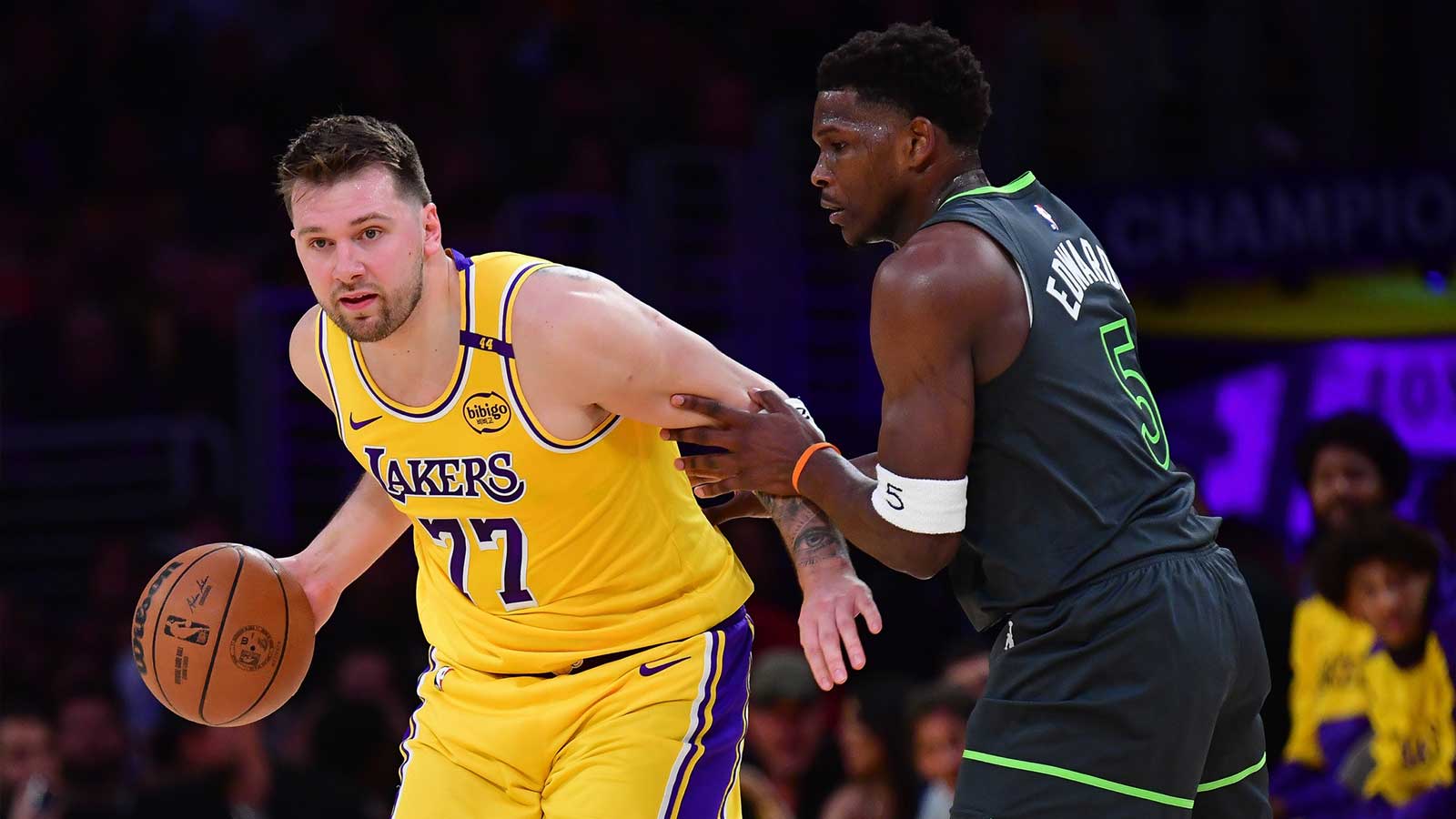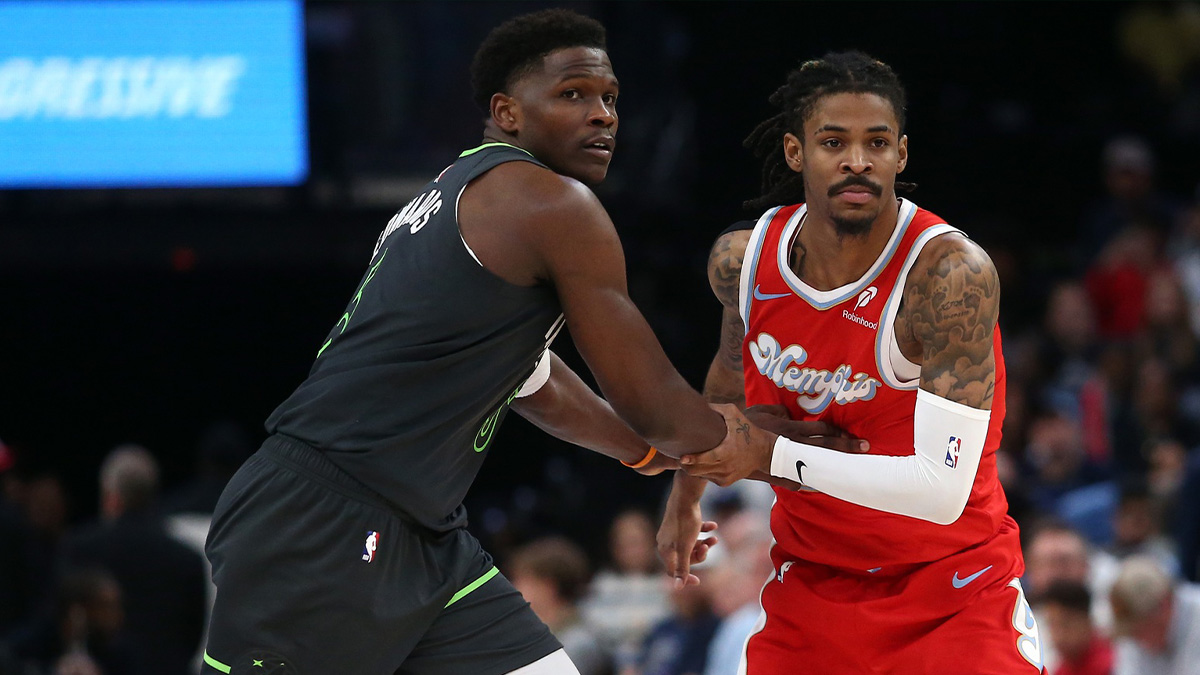It's not a stretch at all to say that the Minnesota Timberwolves franchise has been the worst in NBA history to this point. The stats certainly show that that is the case. The Timberwolves franchise has the lowest winning percentage of all teams in NBA history, having won just 1,091 of their 2,712 games in 34 years of existence thus far. Moreover, the Timberwolves have made the postseason just 11 times during that span, making it out of the first round for a grand total of one time in those 11 years.
With Anthony Edwards sticking around with the team for the long haul, there's certainly a chance for the Timberwolves of the 2020s to put the franchise's putrid past completely behind them. But moving forward oftentimes requires looking at the past so that one could learn from their mistakes — for without this kind of learning, one is doomed to repeat the same mistakes.
With that said, these are the 10 greatest teams in Timberwolves franchise history.
10. 2013-14
At the end of the day, there were only 12 Timberwolves teams to choose from that could have reasonably made the list. The 10th spot on this list ultimately boiled down the 1997, 1999, and 2014 iterations of the team, with the 2014 squad winning out even though they failed to make the playoffs.
For starters, the 2014 Timberwolves had the best net rating among the three choices for this spot (at +2.7). The underlying numbers show that the Timberwolves should have finished with eight more wins than they did during this year (40), and this was certainly the version of the Kevin Love-led Timberwolves at its best.
Love and Nikola Pekovic formed a bruising frontcourt duo, while Ricky Rubio and Kevin Martin's skillsets complemented each other nicely in the backcourt. However, the Timberwolves struggled in the clutch, and their defense, particularly on the interior, wasn't that convincing. They ended up missing the postseason by nine games in one of the most loaded playoff pictures in NBA history.
9. 2022-23
The early returns on the Timberwolves' huge gamble on Rudy Gobert haven't been ideal to say the least. For much of the 2022-23 campaign, the Timberwolves encountered difficulties in integrating Gobert alongside another center in Karl-Anthony Towns. And to further compound matters, D'Angelo Russell didn't have the floor general skillset to make the pieces around him work.
The Timberwolves noticeably improved when they acquired Mike Conley, as Conley is perfectly content to set up the offense and play a more complementary role alongside the likes of Anthony Edwards and Towns.
After a late push, the Timberwolves squeaked into the play-in tournament, almost earning the seventh seed after engaging in a nail-biting affair with the Los Angeles Lakers. After falling short against the Purple and Gold, they proceeded to take care of business against the nascent Oklahoma City Thunder before being mere fodder on the Denver Nuggets' path to winning the 2023 NBA championship.
8. 1997-98
Kevin Garnett was one of those rare players who became too good, too fast, preventing the team from drafting more quality players. (The Timberwolves, however, will forever regret trading away the draft rights to Ray Allen for Stephon Marbury.) Only three seasons into Garnett's career, the Timberwolves won 45 games, good enough for the seventh seed in the Western Conference.
Too bad the Timberwolves didn't exactly have the supporting cast to help the team make some noise in the postseason, and Garnett, as good as he was in his age-21 season, wasn't yet the force of nature he was going to become in his prime. Nonetheless, the 1998 Timberwolves still pushed the two-seeded Seattle SuperSonics to the brink of elimination, but Gary Payton pulled out all the stops on both ends of the floor (holding Marbury to 2-10 shooting from the field) in Game 7 to avoid an upset.
7. 2000-01
Kevin Garnett has grown into a full-blown 20 and 10 beast at this point. It's certainly a bit of a shame that Garnett left his other teammates in the dust in terms of career progression. Despite being one of the 10-best in the league at this point, the Timberwolves in 2001 were unable to provide KG with the All-Star supporting cast he needed to take his team deep into the postseason.
During this campaign, the Timberwolves' second-best player was Terrell Brandon — a solid player, but not exactly the one teams would want to be the sidekick to their best player. Thus, just like most other playoff teams in Timberwolves history, the 2001 team exited the postseason in the first round, falling short against the much deeper and much more talented San Antonio Spurs, who still had the duo of Tim Duncan and David Robinson patrolling the paint.
6. 2021-22
The 2022 Timberwolves were a pleasant surprise. After winning just 23 games the year before, the Timberwolves acquired Patrick Beverley, helping set the tone for a Timberwolves team that surpassed most preseason expectations. Beverley's stats don't jump off the page, but his understanding of defense, not to mention his headstrong nature on the court, helped the 2022 Wolves play with a swagger that won't appear on the box score.
This team ended up winning 46 games, overcoming the Los Angeles Clippers in the play-in tournament and setting up a date with the Memphis Grizzlies in Round 1. And for a bit, it seemed like the Timberwolves were on their way to a first-round upset over the upstart Ja Morant-led team. Alas, the Timberwolves choked multiple times during the series, owing to their general playoff inexperience up and down the roster.
Nevertheless, the 2022 Timberwolves showed that this was a team on the rise — perhaps with the right moves, they could crack the upper echelon of contenders in the league. (The jury is still out, however, on the Rudy Gobert trade.)
5. 2017-18
The Timberwolves had missed the playoffs for 13 straight years heading into the 2017-18 season. Thus, the Timberwolves front office, sensing that Andrew Wiggins and Karl-Anthony Towns were ready to make the leap, added Jimmy Butler (via a trade for Zach LaVine and Lauri Markkanen), Taj Gibson, and Jeff Teague, signaling their intention to make a push for the postseason.
And Butler, certainly, was as good as advertised. His addition put the Timberwolves among the top four teams in the Western Conference, even challenging for the third spot for much of the campaign. However, Butler suffered a torn meniscus in late February, putting the Timberwolves in a precarious position when it came to snapping their 13-year playoff drought.
The Timberwolves, in Game 82, had a chance to seal their postseason fate as they came up against a Denver Nuggets team that had an identical record at that point in time (46-35). Butler, by then, was healthy, and he scored 31 points to lead Minnesota to a 112-106 victory in overtime, sneaking into the postseason as the eight-seed in the process.
Alas, being the eight-seed that year was a death knell, as it meant that they'll be facing the 65-win Houston Rockets team that had the James Harden-Chris Paul partnership firing on all cylinders. Thus, the Timberwolves, again, suffered a first-round exit, losing to the Rockets in five games. What ensued was the messy breakup between Butler and the Timberwolves, which forced the team to undergo another soft reset, rendering this iteration of the team as nothing more as a flash in the pan.
4. 2001-02
The Timberwolves' story certainly gets repetitive, as the 2002 iteration of the team suffered yet another first-round exit. In fact, the 2002 team suffered the fifth of seven consecutive first-round defeats from 1997 to 2003, and at this point in time, the Timberwolves, despite being grateful for having Kevin Garnett on the roster, perhaps wish that they didn't sign their star to a six-year, $126 million deal — a record at the time — as it prevented them from adding more weapons to the roster.
Making a few more additions could have helped the Timberwolves immensely, as this team lost Terrell Brandon in the middle of the season due to injury and Chauncey Billups hasn't exactly broken out just yet at this point of his career. It was the Garnett-Wally Szczerbiak show in Minneapolis, and once again, they were just a stepping stone on the road to success, as this time, it was the Dallas Mavericks' turn to defeat them in the first round of the playoffs.
3. 1999-00
Once again, the Timberwolves bow out early in the postseason, losing in five games to a Portland Trail Blazers team that could have won a championship. One could only say so much without regurgitating what has already been said about this era of Timberwolves basketball, but to sum it up, they were once again a lower-end postseason team, as Kevin Garnett did not have the requisite ballhandling co-star that could have made his life a lot easier on offense.
2. 2002-03
In one of the franchise's biggest mistakes, they watched Chauncey Billups walk away to the Detroit Pistons on a five-year, $35 million deal as they prioritized Terrell Brandon over the player that would soon become Mr. Big Shot. Billups had shown some flashes, particularly in the postseason, of being capable of stepping up as the point guard Kevin Garnett needed, but Brandon had the vote of confidence among people in the Timberwolves organization whose voices mattered.
That cost the Timberwolves a championship-level point guard — setting themselves up for disappointment once again in 2003. It's a testament to Garnett's greatness that the team still won 51 games during a season in which the Timberwolves' four best players outside KG were Troy Hudson, Wally Szczerbiak, Rasho Nesterovic, and Anthony Peeler. That is an uninspiring supporting cast, to say the least.
However, the 2003 Timberwolves still ranks second on the list because this team put up the second-best win total in franchise history to this point, and this team actually won more than one playoff game.
1. 2003-04
It took the Timberwolves seven tries, but they finally made it out of the first round of the playoffs! The Timberwolves were finally able to add some quality pieces alongside Kevin Garnett, with Sam Cassell and Latrell Sprewell both helping elevate the team from an also-ran to one of the league's table-setters. During the 2003-04 season, they won 58 games — good for the best record in the Western Conference and the second-best in the entire NBA.
However, in the end, this team fell short in the Western Conference Finals, as the sleeping giant that was the Lakers — a team that had four Hall of Famers in the starting lineup — woke up just in time to beat the one-seed in six games.
It's a downright shame that the Timberwolves weren't able to replicate their 2004 success. Cassell and Sprewell suffered steep declines in 2005, and Minnesota was unable to recover. After just three seasons, they had to press the reset button, dealing away Garnett to the Boston Celtics and effectively marking the end of a disappointing era of lower-end playoff contention.

